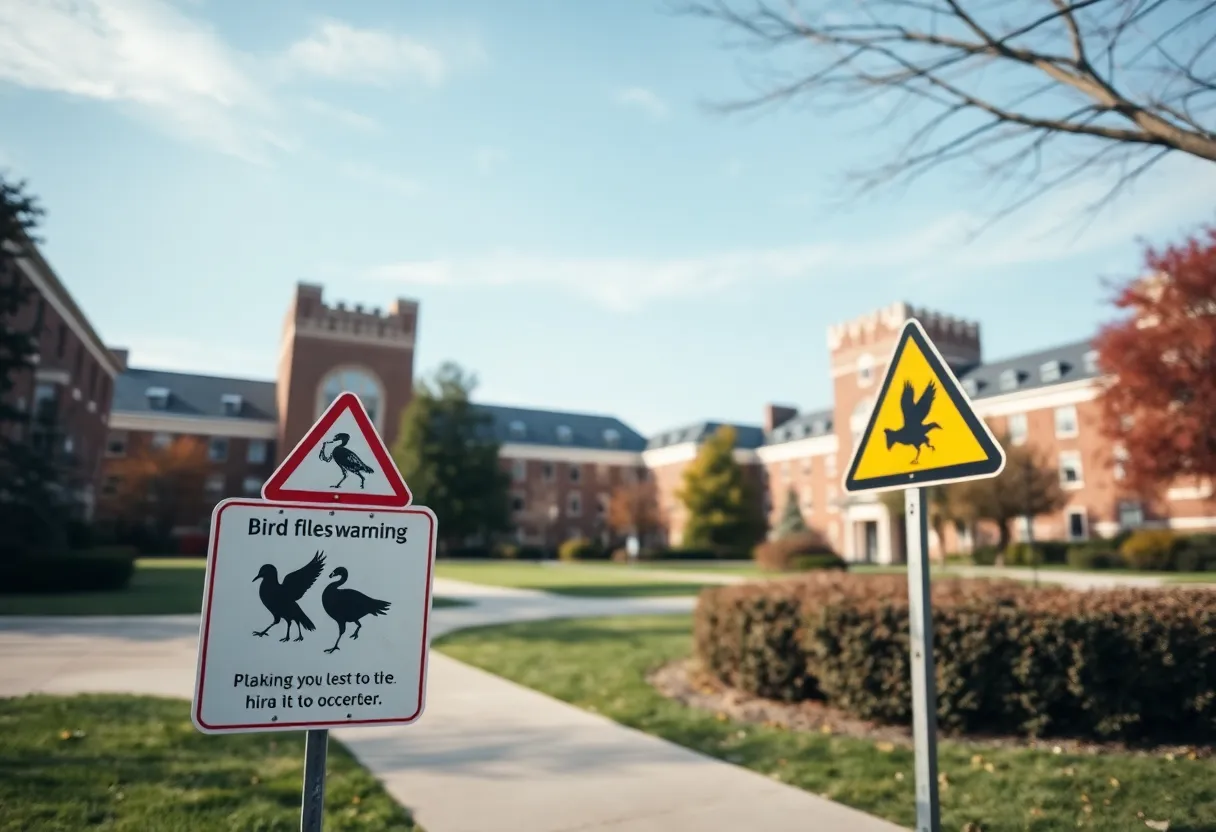News Summary
In response to the rising cases of High Pathogenic Avian Influenza (HPAI) in Tennessee, the University of Tennessee College of Veterinary Medicine has halted the acceptance and treatment of wild birds. This precautionary measure aims to protect the health of students, faculty, and staff. The CDC warns of the highly contagious nature of HPAI, which can impact both birds and humans. Residents are advised to contact authorities if they encounter sick or dead birds, while poultry owners must remain vigilant for signs of infection in their flocks.
University of Tennessee Takes Precautions Amid Bird Flu Scare
Knoxville, Tennessee – The University of Tennessee College of Veterinary Medicine has decided to pause the acceptance and treatment of all injured or abandoned wild birds as a precautionary measure against the rising cases of High Pathogenic Avian Influenza (HPAI), commonly known as bird flu, in the state.
What is Bird Flu?
Bird flu, or HPAI, is no ordinary bug! It’s a highly contagious and often deadly disease that can sweep through poultry flocks like wildfire, leading to the demise of entire groups within just days. The Centers for Disease Control and Prevention (CDC) highlights that this virus can spread rapidly between birds, even among those that may not show any symptoms of the infection. Yikes! And while it’s most dangerous for birds, certain mammals, including humans, can also fall victim to HPAI.
Why the Halt?
In light of these serious concerns, the UTCVM has taken this significant step to safeguard the health of its patients, faculty, staff, and students. By halting the acceptance and treatment of wild birds—ranging from raptors and majestic eagles to charming songbirds and waterfowl—they hope to reduce any potential exposure to this nasty virus.
What Should You Do?
If you’re out and about enjoying Tennessee’s beautiful outdoors and happen to come across a sick or dead bird, stay calm! The best course of action is to contact the Tennessee State Veterinarian’s office at 615-837-5120. But remember, do not touch, handle, or attempt to transport these birds. It’s better to play it safe!
For those who find an injured wild bird, the local Tennessee Wildlife Resources Agency regional office can help. They can be reached at 1-800-332-0900. It’s essential to let trained professionals handle such situations as they know the best ways to deal with potential health threats.
Poultry Owners, Take Note!
Domestic poultry and farm bird owners should also stay alert. If your flock shows signs of bird flu, such as sneezing, coughing, ruffled feathers, or if you notice a suspicious rise in bird fatalities, it’s crucial to consult your veterinarian. Report these symptoms to state or federal animal health officials to get the assistance you need.
Human Risk – Low but Real
While the situation certainly sounds scary, it’s important to note that the risk posed to the general public from HPAI remains very low. The CDC has indicated that human infections typically result in mild illnesses, especially for those working closely with infected birds. However, vigilance is key, especially after the first reported human death linked to bird flu in the U.S. occurred in Louisiana in January 2025.
Final Thoughts
As summer approaches and nature calls us outdoors, it’s essential to remain informed and cautious. While the overall risk to the average person is minimal—especially since there’s no evidence of person-to-person transmission—taking measures to avoid contact with wild birds during this time is wise. The safety of our community, as well as that of our feathered friends, is a collective responsibility that requires awareness.
Keep your eyes peeled, folks! Let’s work together to protect ourselves and those beautiful birds flitting around our neighborhoods. Remember, if you’re unsure about any wildlife you encounter, don’t hesitate to reach out to the proper authorities. Safety first!
Deeper Dive: News & Info About This Topic
HERE Resources
Knoxville’s Arts Scene Faces Venue Challenges Ahead of 2024
Additional Resources
Author: STAFF HERE KNOXVILLE WRITER
The KNOXVILLE STAFF WRITER represents the experienced team at HEREKnoxville.com, your go-to source for actionable local news and information in Knoxville, Knox County, and beyond. Specializing in "news you can use," we cover essential topics like product reviews for personal and business needs, local business directories, politics, real estate trends, neighborhood insights, and state news affecting the area—with deep expertise drawn from years of dedicated reporting and strong community input, including local press releases and business updates. We deliver top reporting on high-value events such as Dogwood Arts Festival, Big Ears Festival, and Knoxville Asian Festival. Our coverage extends to key organizations like the Knoxville Area Chamber Partnership and United Way of Greater Knoxville, plus leading businesses in healthcare, education, and energy that power the local economy such as Covenant Health, University of Tennessee, and Tennessee Valley Authority. As part of the broader HERE network, including HEREBristol.com, HEREChattanooga.com, HEREMemphis.com, and HERENashville.com, we provide comprehensive, credible insights into Tennessee's dynamic landscape.






